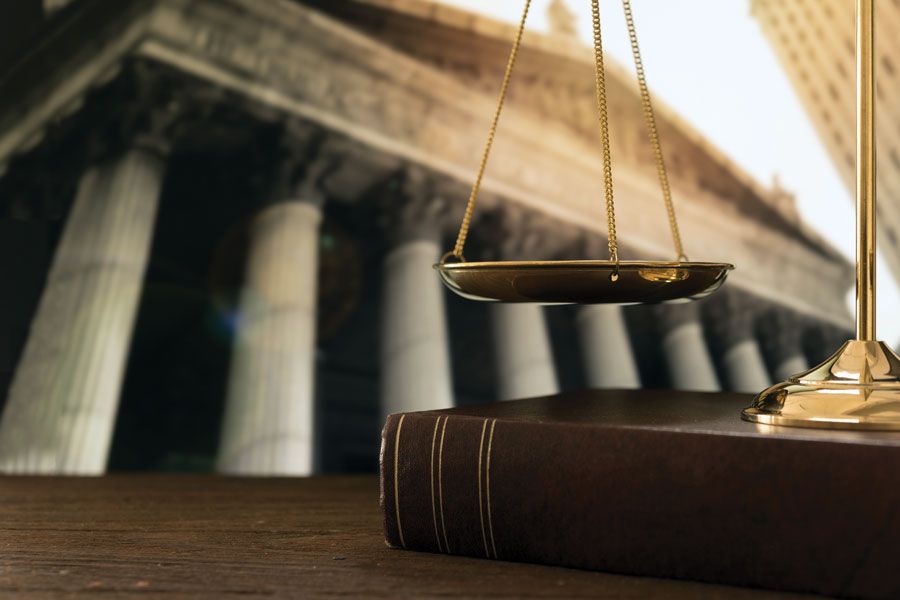Supremes may decide Finra-Schwab scuffle
The battle between Finra and Schwab over class-action waivers is not done. Lawyers say the case could get swept up in the national debate over consumer rights -- and ultimately end up before the Supreme Court.
The fight between Finra and The Charles Schwab Corp. over the use of class action waivers in arbitration agreements could end up in the U.S. Supreme Court.
Last Tuesday, the Financial Industry Regulatory Authority Inc. began what could be a long journey when it appealed the decision by its own hearing panel that the self-regulator couldn’t force Schwab to stop using arbitration agreements requiring customers to bring all disputes into Finra-run arbitration forums.
The case now sits with Finra’s National Adjudicatory Council. If it continues beyond the NAC, appeals will be heard by the Securities and Exchange Commission, then a U.S. Circuit Court of Appeals and finally the Supreme Court.
Schwab won round one in the fight Feb. 21, when Finra’s hearing panel said the Federal Arbitration Act prevented the regulator from enforcing rules that ban the controversial waivers, which have been used by businesses increasingly to force all claims into arbitration — where class actions often are banned or difficult to prosecute.
“I expect [the Finra-Schwab case] to go up to the Supreme Court,” said Jacob Zamansky, founder of Zamansky & Associates LLC, who represents in-vestors in class actions as well as arbitrations.
Kevin Carroll, associate general counsel at the Securities Industry and Financial Markets Association, disagrees.
“It’s possible, but I think it’s unlikely,” he said.
“The hearing panel decision turns on its application of Supreme Court precedent,” specifically AT&T Mobility LLC v. Concepcion, Mr. Carroll said. Finra must “overcome the underpinnings of the hearing panel decision, which was thoroughly reasoned.”
In the AT&T Mobility case, which the hearing panel cited in its decision last week, the high court threw out a California law banning class action waivers in arbitration agreements, ruling that the FAA’s principles pre-empted state law.
The use of such waivers follows a string of business-friendly Supreme Court decisions based on the nearly 90-year-old FAA’s regime of promoting alternative dispute resolution.
NOT COMPARABLE
Finra has a shot at winning because the AT&T Mobility case isn’t directly comparable to Schwab’s, said Paul Bland, a senior attorney at Public Justice, a public-interest law firm founded by trial lawyers.
He also thinks that the case could reach the high court.
“The idea that securities laws — [with] their own separate system of regulations — are just like AT&T and its cellphone business is wrong,” Mr. Bland said.
Unlike the SEC, which regulates Finra’s arbitration procedures, “the [Federal Communications Commission] plays no role” in structuring phone companies’ arbitration agreements, “so I think there’s really an apples-and-oranges difference,” he said.
Indeed, contrasts between types of legal claims, and the arbitration agreements and hearing procedures used in particular cases, are what the Supreme Court has been trying to sort out.
Last week, it heard oral arguments in a dispute pitting small retail merchants against American Express Co. in an antitrust case involving arbitration and class action waivers. It also will hear a case at the end of this month, Oxford Health Plans LLC v. Sutter, involving the wording of an arbitration agreement.
“To say that the court is interested in these issues right now is an understatement,” David Garcia, a partner at Sheppard Mullin Richter & Hampton LLP, wrote on the Supreme Court’s blog.
The string of Supreme Court cases involves parties who voluntarily signed agreements, said Heath Abshure, Arkansas’ securities commissioner and president of the North American Securities Administrators Association Inc.
That contrasts with the widespread use of such agreements by brokerage houses, where investors may not have the option of avoiding arbitration, he said.
NOVEL ISSUES
“I don’t know if I’ve ever seen … a broker-dealer without an arbitration agreement,” Mr. Abshure said.
The Schwab case raises significant and perhaps novel issues, observers said.
First, more brokerage firms likely will follow Schwab’s lead if it is successful in preventing customers from filing class actions. But Finra has long had rules ensuring that brokerage firms can’t stop customers from participating in a judicial class action instead of an individual arbitration case.
Critics of waivers said that small claims are best handled through court-run class actions.
But Finra doesn’t allow class action claims in its arbitration system, so Schwab attempted to preclude customers from pursuing such claims.
“There’s also an issue of federal securities laws and Finra’s right to regulate its own members,” Mr. Zamansky said. “I don’t see a broad [Supreme Court] ruling that every waiver is appropriate under every circumstance. I think they could do it piecemeal, look at each specific statute and weigh it against the FAA.”
The self-regulatory system developed from the securities industry’s desire to “avoid broader government regulation, [but] with SEC oversight,” Mr. Bland said.
Regarding arbitration, “the deal was that class actions could proceed in court,” while the industry gained the benefit of arbitration in larger cases, he said.
Schwab can make a strong case on the key issue of giving small claims access to justice in an arbitration setting, Mr. Carroll said.
Finra’s “procedural rules are unique and more robust than many forums’,” including lower costs and streamlined rules for filing small claims, he said.
Learn more about reprints and licensing for this article.



